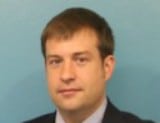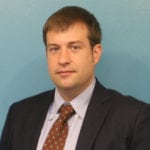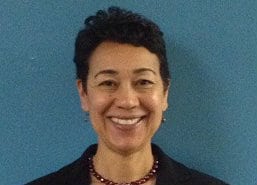There’s nothing more important to a student’s education than an effective, engaged teacher. Dedicated educators who have a passion for their subjects have the ability to profoundly influence learning experiences and produce intellectually curious, high-achieving students.
However, states and school districts often struggle to prepare and retain high-quality educators, and in 2014, the Department of Education made having an equal distribution of effective teachers a national priority with its announcement of the “Excellent Educators for All” initiative.
This month, the Woodrow Wilson National Fellowship Foundation released a comprehensive review of their teacher fellowship training program, Answering the Call for Equitable Access to Effective Teachers: Lessons Learned From State-Based Teacher Preparation Efforts in Georgia, Indiana, Michigan, New Jersey, and Ohio.
Established in 2007, the fellowship program is an effort to build robust, multi-state pipelines of effective teachers that are not only well-prepared for the classroom, but will also commit to schools that need them the most. The program includes mentoring resources for fellows during and after the program, and a year-long master’s degree in science, technology, engineering and math (STEM) education.
“We know that high-need classrooms are where we need to make the most gains and make the most impact,” said Patrick Riccards, Chief Communications and Strategy Officer at the Woodrow Wilson National Fellowship Foundation. “It should be common sense to us that we put the best teachers in the classrooms where we need them the most.”
The program is anchored by three elements: academic preparation and mastery of classroom competencies, rigorous classroom preparation, and heavy mentoring support for fellows. “We’ve found the right balance of the three key components,” said Riccards. “That seems to be the right combination that dramatically improves the odds of being a successful teacher in the classroom.”
The initiative also focuses heavily on STEM education preparation. In discussions with school districts around the country, the foundation learned that many schools are in need of high-quality STEM educators. “That’s why we started our program, that’s where we saw the most acute needs,” said Riccards.
The program is producing promising results in moving towards its goal of putting qualified educators where they are most needed. An external review by Center for the Analysis of Longitudinal Data in Education Research (CALDER) at the American Institutes of Research (AIR) showed that:
- In Indiana, almost half of STEM teachers hired in Indiana each year since the establishment of the program are fellows.
- Fellows are three times more likely than their non-fellow peers to teach English language learners, and four times more likely to teach African American students.
- 100 percent of Michigan fellows had their STEM license, compared with 87 percent of their non-fellow teacher peers who taught core STEM classes.
However, performance outcomes only tell part of the story. Teacher retention is essential to ensuring equal access to effective educators over the long term. As part of the program, fellows commit to teaching for at least three years in a high-needs school in their state. The recent report data shows that teacher retention for fellow teachers after year four is nearly 90 percent, and after the fifth year, the percentage of teachers who stayed in their schools was 80 percent, said Riccards.
“This is what is essential to what we’re trying to do. It’s not just preparing great teachers, it’s making sure that you make great teachers and that they’re sticking,” said Riccards. “We’re seeing that they’re not just staying in the profession, but they are staying in those high-needs schools in their state.”
The fellowship is continuing its work, and has plans to extend the program to three additional states in the future. Whatever new political or philosophical shifts in education policy occur, the one constant seems to be that focusing on teacher quality is critical.
“If you have a good teacher in charge of a classroom to do what is necessary to educate the kids, the kids learn. There’s no getting around that,” said Riccards. “As policies change, as instructional approaches change, we know that good teaching trumps all.”
George Knowles is the Communications Associate at the American Youth Policy Forum




